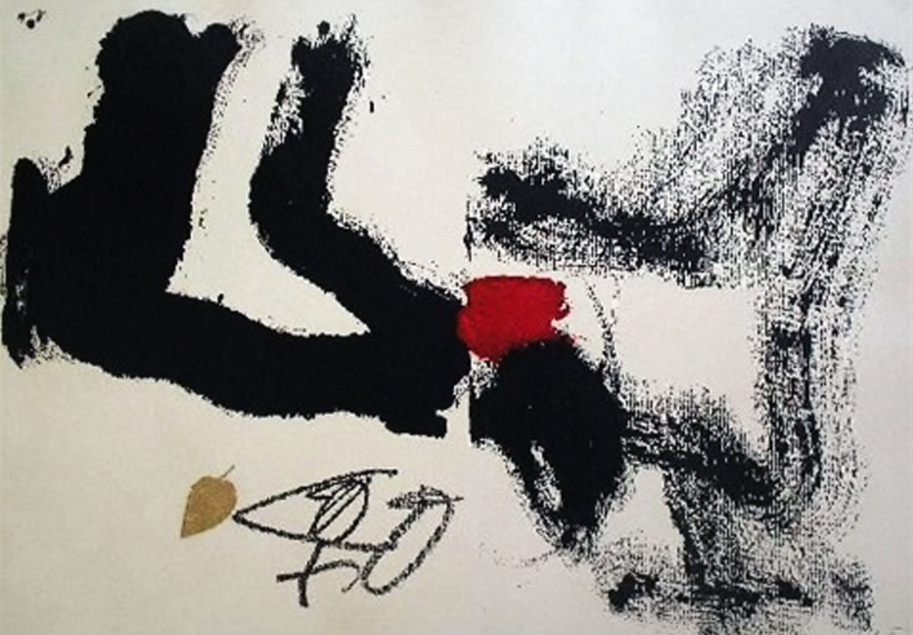Two Stories
By Tetman Callis - Dec 18, 2017

All The Sobbing Cops
It wasn’t the stiff and desiccated bodies stacked standing behind the closed closet door and it wasn’t the rigor-mortified corpses hanging from the rafters by clotheslines and panty hose, engaging in the gentle sway and rotation characteristic of such bodies in such an array, that got to the cops. It wasn’t even the soggy body in the laundry room, stuck on spin in the high-capacity washer, that reduced them to tears and wipings on their uniforms.
It was the body on the hardwood floor, the floor shiny and clean, light coming in from the window on the far wall and reflecting off the floor and backlighting the body, sidelighting all the sobbing cops: the rookie on his butt in the mess by the body, prematurely peeling off his protective gloves; the old sergeant being decked out by Internal Affairs, pulling black satin up to his elbows; the good cop staring out the window, his back to the body, weeping quietly, bitterly, softly; the bad cop burying her face in her forearms where she leaned on a chest of drawers along the wall; the other cops, an easy half-dozen wandering from room to room, their hard-bitten lips trembling as they struggled to keep it all in, only to fail and fall one by one to their knees in grief.
Once the old sergeant—who had seen it all before and one too many times—had been made over and taken out, Internal Affairs, barefoot and clad as always in white cotton summer dress with nothing underneath, returned to the room, moving gracefully and quietly, one could even say lovingly, to each officer in turn. First to the woman at the chest, then to the rookie on his butt, then to the man at the sill, finally to those remaining, each taken in turn by Internal Affairs, gently by the latex-gloved hand or the uniformed sleeve or the edge of the bullet-proof vest, and led to the body on the floor. There some words were murmured before Internal Affairs, silhouetted against the window on the far wall, her dress a pale gauzy halo, put an arm around the shoulders of the cop being comforted and walked the officer out of the room.
The Well-Molded Military Brick
The rains came raining hard for weeks, cold autumn rains out of low, gray skies. The desert flowers bloomed, rotted, washed away. Lizards, snakes and rabbits gathered on high ground around clumps of mesquite. Coyotes padded splashing through puddles, searching for stragglers inadequately hidden under the mesquite’s protecting thorns, or for corpses bloating just under the face of the waters or washed up on the shorelets around each little clump-island where the ground was turning into the kind of mud you could make into bricks for houses, if only the rain would stop and the sun come out long enough for the bricks to be cut, then baked through dry and hard.
Thousands of square miles, round miles, triangulated miles, jagged-edged miles shoved up one against the other with edges that didn’t match, all these miles covered in household mud just waiting to be cut, shaped and patted into bricks leavened with the bones the coyotes didn’t eat, with stems and leaves of drowned grasses, blossoms off rotted wildflowers. A nation could be mobilized, given a mission, volunteers crusading into the desert to make bricks for all the shivering homeless of Africa, Asia, Indianapolis, and South Fusilado of the cardboard shacks.
There would be no need for the sun to come out, the army could be sent in: soldiers towing huge field ovens behind heavy, tracked vehicles, bricks baked on the spot, spray-coated with some experimental titanium- or graphite-based resin, then loaded onto pallets in stacks covered with canvas bearing reinforced eyes at specified intervals along the edges, strong nylon ropes passing through the eyes and made secure, other ropes coming off the corners of the pallets to join and loop loosely at the tops, while huge helicopters settle over fields of pallets, hovering while sopping soldiers stand atop the palleted stacks of canvas-covered resin-coated bricks, the soldiers hooking the ropes to hooks hanging from chains hanging from the bellies of the helicopters, the soldiers double-checking to ensure the ropes and hooks and chains are secure, then jumping from the pallets into the mud, splashing, catching the eyes of the helicopter pilots, giving the high sign, the thumbs up, the wave-off, the when-you-are-ready-gridley to the pilots whose helicopters lift, straining against the weight of their loads, pulling the pallets out of the sucking mud and up into cruising altitude, flying them to the nearest concrete airstrip where military transports, dumpy olive drab turboprops and sleek silver jets, wait to take on loads of bricks made of mud and bones and flowers to fly to every part of the world, bringing the makings of homes to millions of people who may have had a pot to piss in but had no window to throw it out of, who would never know what it was like to have the wolf at the door until they could build themselves huts to put doors in—people who for ease of planning could be reckoned as being without discernible direction, who would never know what hit them when it did, who knew how to be grateful for the well-molded military brick, who could speak a little English, who could swallow pride by the tunful, who knew what side their bread was buttered on (if they could get bread), and who could be counted on never to breathe a word, always to go quietly, ever to wait their turn and know it when it came, and never to forget, never to forgive; and who would swear that, next time, it wouldn’t be them and it wouldn’t be rain and it wouldn’t be bricks.
